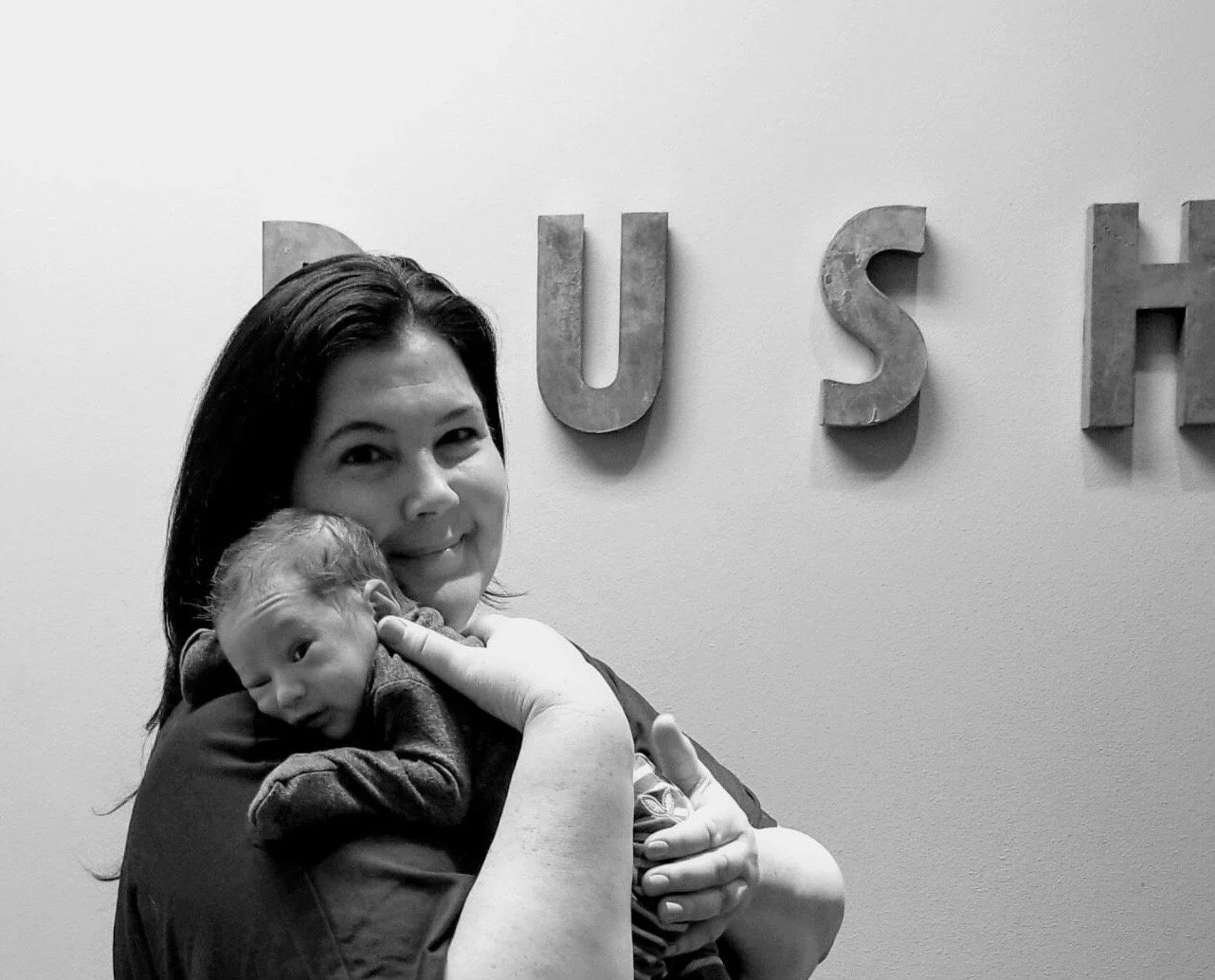Robyn Pool | Episode 034
Birth by Design: Midwife Robyn Pool on Maternity Care, Entrepreneurship & Wellness
Pushing Boundaries: A Conversation with Robyn Pool on Midwifery, Birth, and Business
How one midwife challenges the status quo, empowers women, and navigates the messy, magical journey of starting and running a birth center.
Rediscovering Birth: From Inspiration to Vocation
In the latest episode of The Dean's List, host Alison Dean sits down with Robyn Pool, a licensed midwife and founder of Push Birth Center in California’s Conejo Valley. Drawing from more than a decade of hands-on experience, Robyn’s story is a testament to the enduring power—and challenge—of returning birth to women, families, and communities.
Robyn’s path to midwifery began unexpectedly, rooted in her childhood fascination with a neighbor’s home birth photos. She explained, “They were everything my family was not…their mom had home births with midwives” and, as a young girl, “that way of having a baby was always very appealing for me.” This early exposure planted a seed, but it wasn’t until Robyn became a mother herself and experienced the “transformative” care of her own midwives that she truly found her calling. “The care and the relationship that I built with my midwives really changed…what it was to be a woman and have relationships like that with other women.”
What Does a Midwife Really Do?
One of the conversation’s early revelations is just how misunderstood midwifery remains. As Robyn describes it, “A midwife is a health care provider dedicated to caring for women and their families and their babies during their reproductive health care years.” The term, however, covers a huge spectrum—from helping with births and reproductive care to providing support during losses and even assisting with birth control or IUDs.
Despite this, many still see midwifery as outside the mainstream. Licensure requirements and regulations differ dramatically by state, something Robyn feels can be both a blessing and a curse. “My own experience says…well, it all looks great until it doesn’t. And it’s when it doesn’t, that’s the problem.” For families considering a midwife, she recommends asking not just about the number of births attended, but about their experience with emergencies, transfers, and loss—areas that truly measure expertise in the field.
The Reality of Being On Call: Business, Boundaries, and Burnout
The romanticized notion of the midwife “catching babies all day” is far from the full story. “Midwifery wins,” Robyn says bluntly. Whether it’s missing milestones or never knowing when the next emergency call might come, “If there is a family issue…that need you, you can’t not step out.” She credits her husband’s flexibility and partnership for making her career possible, highlighting how deeply personal lives and family structures are affected by the demands of the profession.
Opening a birth center was another leap into the unknown. “It wasn’t as though I had $60,000 in the bank… I opened my business as I made money.” She furnished Push Birth Center bit by bit, using thrift and scrappiness over background capital. The phone “surprisingly started ringing” and hasn’t really stopped, but Robyn admits, “There are weeks and times and days when I think, I do not like this job and I do not want to do this anymore.”
Social Media and Authenticity in Birth Work
In an age ruled by Instagram and TikTok, does social media have a place in the work of a midwife? Robyn is skeptical, preferring reputation and referral over self-promotion. “I really struggle with that… there’s so much of this work that is so private.” She recounts a failed experiment with a reality TV pilot that proved just how little “reality” is wanted by producers seeking drama over authenticity.
The Power and Politics of Birth
Robyn and Alison go deep on the ongoing tension between traditional midwifery and the highly medicalized, regulated environment of modern birth. The conversation highlights a complicated lineage of institutional suspicion, overregulation, and racial inequity. As Robyn puts it, “Midwifery has been under attack… for generations and generations.” While technology can improve outcomes, over-medicalization strips away autonomy and agency: “Hospitals are well-oiled machines—but there’s not much efficient when it comes to birth.”
Empowerment, Healing, and Hope
Perhaps the most poignant takeaway is how birth can serve as a portal to power or healing. Robyn’s stories—of women insisting on autonomy, of overcoming difficult first births, of supporting each other through vulnerability—demonstrate the profound emotional and spiritual dimensions of this work. “People come out of birth hopefully feeling very strong and powerful. That’s always what I hope, regardless of how that birth ended.”
What does the future of birth hold? Robyn sees hope in the ripple effect—every positive experience with midwifery, every empowered mother, shifts the perception of birth just a little further from fear and toward trust, community, and sovereignty.
Follow Robyn:
Instagram: @pushmidwifery
Website: https://www.pushmidwifery.com
Don’t forget to:
Subscribe for more inspiring episodes. Youtube
Follow us on Instagram: @Official_DeansList
Follow us on Tiktok: @official_Deanslist

